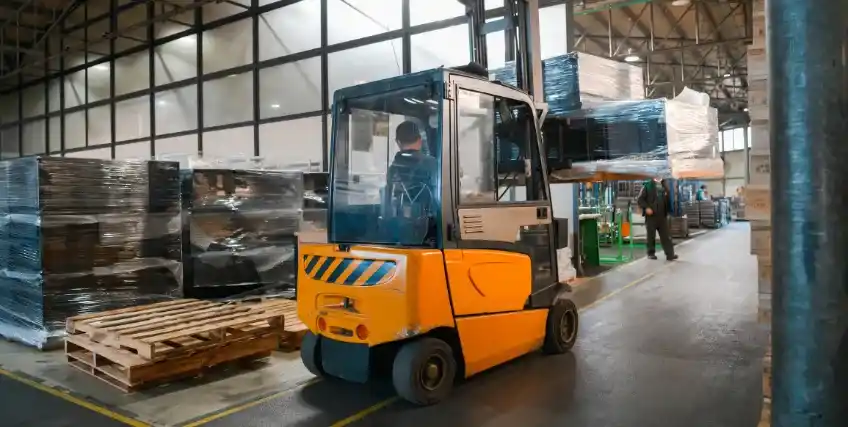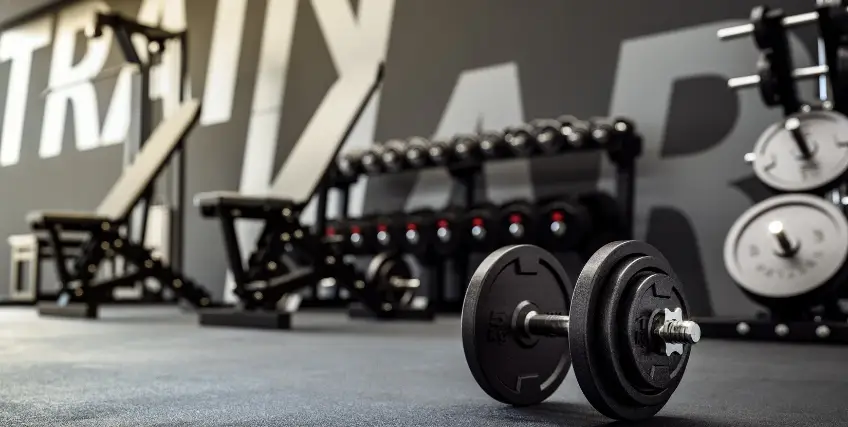Looking for Business Financing?
Apply now for flexible business financing. Biz2Credit offers term loans, revenue-based financing, lines of credit, and commercial real estate loans to qualified businesses.
Set up a Biz2Credit account and apply for business financing.
In construction, having the right tools is everything. Your productivity and output depend on the quality of your equipment. If you have outdated or inefficient machinery, it can have a direct impact on your business and your bottom line. It can slow down projects and hike up costs.
Upgrading your equipment can help you increase efficiency and grow your business. The challenge is that many small business owners don't have the capital to make such large purchases. Financing heavy equipment bridges the gap and can help you unlock new growth opportunities in your business. In this article, we cover how financing may help you expand. Learn more about different types of financing and what to consider when you compare lenders.
Why Financing Heavy Equipment May Be a Good Idea
If you work in construction, you need the right heavy equipment to do the job. Excavators, skid steers, bulldozers, cranes, and more. The problem is that just one of these pieces of equipment can set you back thousands of dollars.
Paying the upfront costs could put a major strain on business finances. Financing heavy equipment can be a smart idea to make expenses more manageable and to boost business growth.
Protects Cash Flow
Cash flow is king, and what can make or break a business, is the ability to protect it. Having substantial upfront costs can mean the money going out is much higher than the money coming in. What can start as a small issue can quickly snowball into a huge problem. Financing heavy equipment can help you break down the cost into manageable monthly payments.
Flexible Payment Options
Some specialized heavy equipment lenders offer flexible payment options. For example, John Deere provides heavy equipment loans and leases. According to the company's website, during slower periods with decreased workflow, some borrowers may be eligible to skip loan or lease payments.
Construction can be seasonal, and having flexible payment options can be a lifeline when your revenue takes a hit.
Improves Liquidity
One of the main benefits of financing heavy equipment is improved liquidity. By protecting your cash flow, you maintain access to liquid assets. So, if you need to draw from them to cover immediate financial obligations and any potential surprises, you're ready.
In business, being nimble is crucial. Not having the majority of your cash tied up in new equipment purchases can stabilize your business finances.
Increase Efficiency
You might not have the funds to pay for equipment purchases upfront. Financing heavy equipment lets you access the machinery you need now, not later. The fact is that technology is evolving quickly. Using outdated equipment could have an impact on your job performance and efficiency. On the other hand, using modern equipment can increase your efficiency, improve your output, and strengthen your bottom line.
Accelerate Growth
Financing heavy equipment isn't just about getting the tools you need. It's also about being able to accelerate your business growth and focus on expansion. Managing the logistics of a small business is tough. But having the latest construction equipment boosts your productivity. In turn, you can take on more projects, meet deadlines, and grow your operations without waiting years to save up for one piece of equipment. The result could lead to revenue growth and more clients.
Financing Solutions to Purchase Heavy Equipment
Construction businesses that want to finance heavy equipment have several different options to consider.
Heavy Equipment Loans and Leases
You can work with a specialized lender and secure a heavy equipment loan or lease. In both cases, these financing options give you access to the equipment you need in exchange for manageable payments. However, the way they work is quite different. An equipment loan provides capital upfront to help you purchase new or used equipment. At the end of your repayment term, you own the equipment outright.
An equipment lease acts as a type of rental agreement. You make payments to access the equipment for your lease term. At the end of the lease, you may return the equipment or have an option to buy the equipment, depending on the arrangement and your leasing options.
Both heavy equipment loans and leases may come with certain tax benefits. Equipment loans and capital lease agreements may allow a tax deduction on depreciation of the asset. Operating leases don't allow you to deduct depreciation, but you may be able to write off the payments as business expenses. As always, talk to a tax professional about your specific situation. To help you decide whether a loan or lease is best:
Think of your business needs
Review cash flow for monthly payments
Whether you want to prioritize ownership vs. flexibility
The long-term impact on your business finances
Term Loans
Term loans can help with financing heavy equipment. Borrowers receive a lump sum to purchase the equipment, making it ideal for high-cost purchases. So, whether you need forklifts, backhoes, or cranes, you can get the funds to pay for them.
Generally, term loans have fixed interest rates and repayment periods. Thanks to these terms, repayment is often predictable, manageable, and easier to budget for.
These are the primary options for financing heavy equipment. If you need help with operating expenses or have smaller purchases, you can also look into working capital loans and business lines of credit.
Working Capital Loans
Working capital loans are an ideal option to cover day-to-day expenses. These loans are typically for payroll, inventory, and keeping your business running smoothly. Business lines of credit are attractive for small businesses that need flexible financing. Lenders approve borrowers for a set credit limit to draw from as needed. As you make payments on the line of credit, your available credit replenishes, allowing you to borrow again as needed.
What to Consider When Comparing Lenders
If you're interested in financing heavy equipment, you'll want to find a reputable lender. Here are some things to look at:
Interest rates: The interest rates on your loan directly impact the cost of borrowing. Some lenders may offer more competitive rates than others. Making on-time payments and lowering your debt-to-income ratio could help improve your credit score. Generally, a better credit score can lead to a better interest rate.
Down payment: Some lenders may offer 100% equipment financing, but a down payment of 10% to 20% can also be common.
Fees: Read through the disclosures and review potential origination fees, prepayment fees, and late fees.
Repayment term: Check out the repayment term options to see how long you have to repay the loan. Some options may be short-term, like one year. Others could have longer repayment terms, up to seven years or more, depending on the lender.
Borrower benefits: Compare any potential borrower benefits. For example, being able to defer payment during seasonal slowdowns or having a 0% APR promotional offer.
Lender reputation: Find customer reviews on Trustpilot, the Better Business Bureau (BBB), and Google. Take everything with a grain of salt but see if you can spot any patterns.
Application process: Every lender will have a different application process. Some online lenders may be faster with processing times. Typically, lenders look at your credit history, annual revenue, and time in business. You might need to provide your business financial statements, tax returns, profit and loss, and other supporting documentation.
Funding timeline: If you need the money right away, then the funding timelines are going to matter a lot. Online or specialized lenders may have quicker funding timelines than traditional banks and credit unions. But if you have an established business banking relationship, consider any potential perks you might get or miss out on if you go elsewhere.
Comparing your options and reviewing these various factors can help you make an informed decision.
Final Thoughts
Construction is all about managing moving parts and sticking to schedules. It can be a profitable industry, but also a very expensive one. The equipment you need is often cost-prohibitive. Financing heavy equipment is a tool to grow your business, without putting your cash flow on the line. You can break down huge upfront costs into manageable loan payments. Doing so can help you to focus on expanding your operations without tying up all your funds in the process.
FAQs about Financing Heavy Equipment
Here we cover frequently asked questions about financing heavy equipment.
1. What Is Heavy Equipment Financing?
Heavy equipment financing refers to different financing solutions available to purchase construction equipment. Depending on your equipment needs, you can look into different financing programs and options or heavy truck financing. Term loans and heavy equipment loans and leases are some popular options.
2. What's the Difference Between Heavy Equipment Loans vs. Equipment Leasing?
When financing heavy equipment, you typically have the option to get an equipment loan or lease. The main difference is ownership of the equipment. An equipment loan provides full ownership at the end of the loan term, whereas an equipment lease doesn't when the lease ends.
3. What Are the Best Heavy Equipment Financing Options?
The best heavy equipment financing options depend on your business needs. If you don't want to commit to a purchase, financing heavy equipment with a lease could make sense. On the other hand, term loans and equipment loans help you purchase what you need and provide full ownership.
4. Can You Get Heavy Equipment Financing with Bad Credit?
Financing heavy equipment is possible, even if you have bad credit. But approval depends on the lender and the loan amount. Typically, borrowers with bad credit have higher interest rates, lower loan amounts, and larger down payments.
5. Do You Need a Down Payment for Financing Heavy Equipment?
You may need a down payment when financing heavy equipment. Some lenders offer 100% financing, while others may require a 10% to 20% down payment of the total loan amount. The equipment acts as collateral, which can reduce the lender's risk, making it easier for borrowers.




